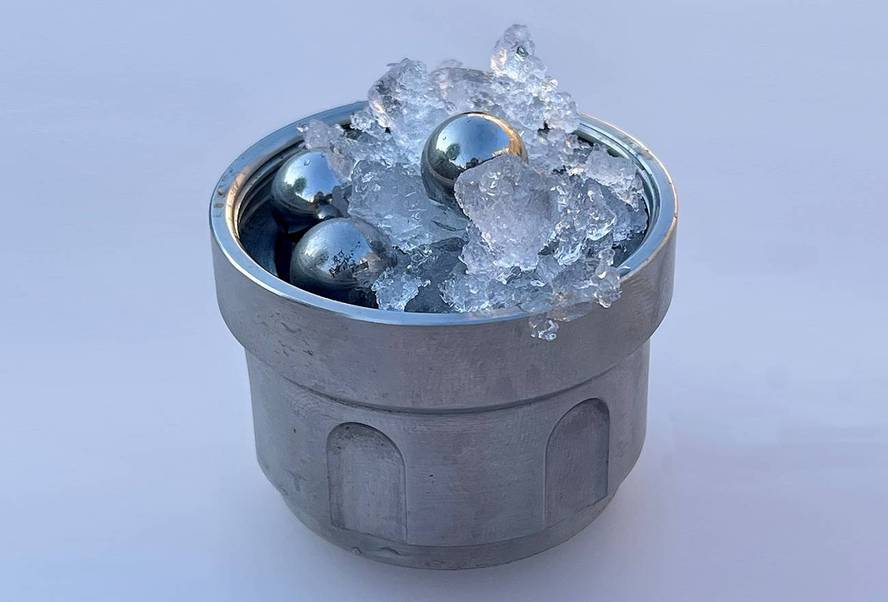Create a new variant of amorphous ice

Scientists knew 20 crystalline phases and two families of frozen water amorphous ice. The most common on Earth is the crystalline phase, where water molecules form regular hexagon shaped structures. In the universe, it seems that the less regular amorphous ice is the most abundant.
Now, at the University of London, UCL, they've made an unknown amorphous ice, destroying the common ice, hitting a few day-long balls, in a very cold container (-200 ºc). The resulting amorphous ice has almost the same density as liquid water: 1.06 g/cm3.
Researchers think it's very likely that there will be similar ice inside frozen moons. And that's because the forces of giant gaseous planets trigger the process of forming this kind of ice. Moreover, they have suggested that by increasing pressure and heating, it can be recrystallized, which can cause tectonic movements. Therefore, the experiment serves to study the aspect of water in space.





